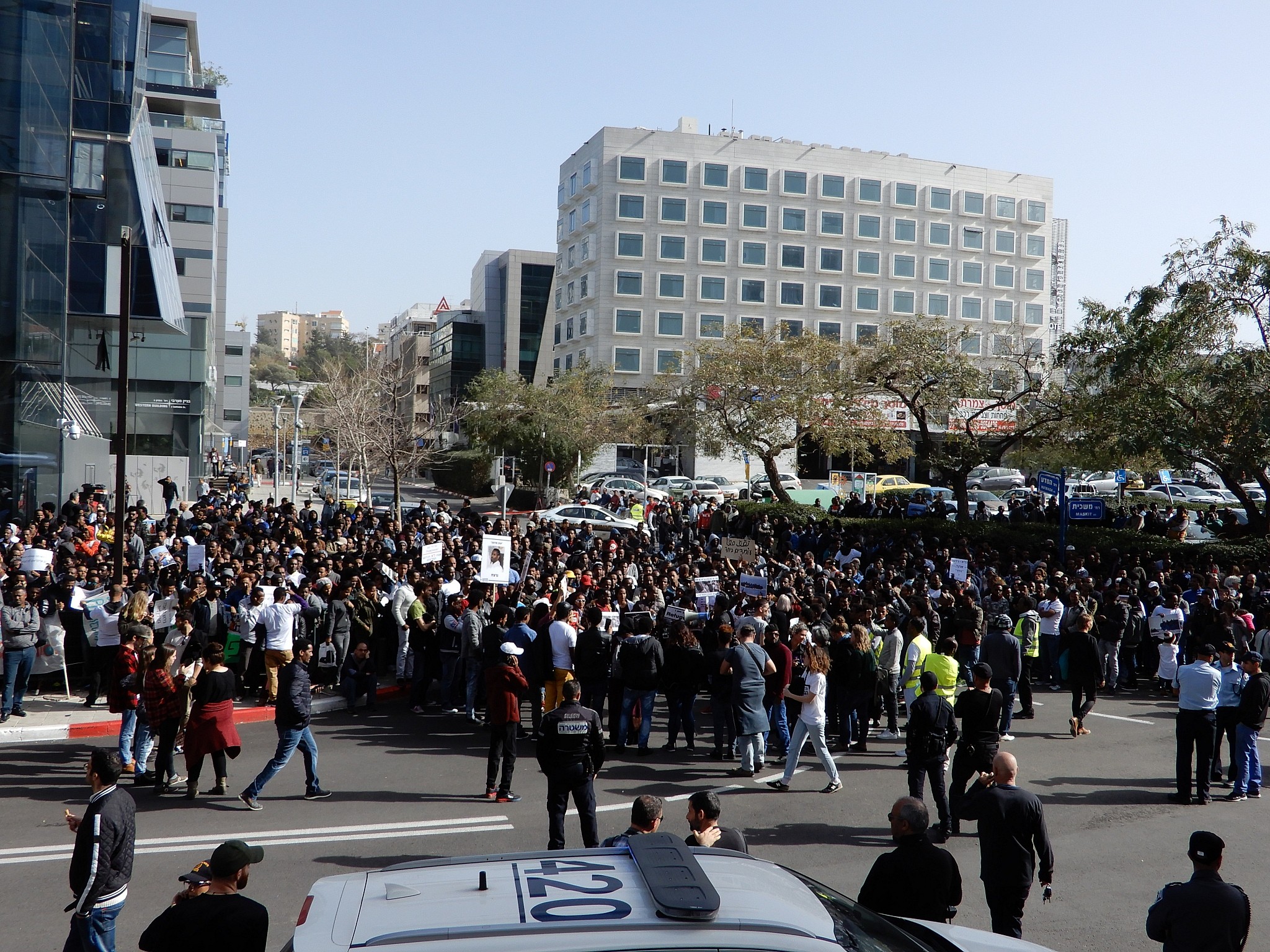The first 200 Eritreans faced with the choice of leaving Israel or going to prison must make the decision by Sunday, a spokeswoman for the Interior Ministry’s Population, Immigration and Borders Authority said Friday.
The deadline for their decision was initially Friday, but because it fell on a weekend, just before the Sabbath, the asylum seekers were being given more time, said spokeswoman Sabine Hadad.
On February 4, the Interior Ministry began to distribute deportation notices to asylum seekers who came to renew their two-month visas in Bnei Brak. The notices give them two months to either leave the country with a $3,500 grant or face imprisonment in Saharonim Prison.In December, the Knesset approved an amendment to the so-called “Infiltrator’s Law,” paving the way for the forced deportations of Eritrean and Sudanese migrants and asylum seekers, and the indefinite imprisonment of those who refuse to leave. However, a group of 200 asylum seekers in the Holot detention center was handed deportation notices on January 17, and given 30 days to decide. If they refuse to leave the country on Sunday, they will be taken across the street to Saharonim, though Hadad did not say if the 200 asylum seekers will be immediately moved to the secure facility.
Previously, prison officials have said that the Israel Prison Services does not have enough space to absorb every asylum seeker who refuses deportation.
This week, Prime Minister Benjamin Netanyahu told a group of Likud ministers and activists in favor of the deportations from south Tel Aviv and other cities that the main challenge in the coming weeks will be the publicity battle against “fake but widely available propaganda” regarding the deportations,
Walla news reported.
He instructed the government to use the term “removal” instead of “deportations.”
More than 1,000 Eritrean asylum seekers gathered in front of the Rwandan embassy in Tel Aviv on January 22, 2018 to protest planned deportations. (Melanie Lidman/Times of Israel)
On Thursday, an
Israeli appeals court ruled that Eritreans who deserted military service in their home country and came to Israel have grounds to be considered asylum seekers.
The decision could affect thousands of Eritreans who are facing deportation under the amended law. The majority of male Eritrean asylum seekers in Israel fled their home country to avoid conscription into military service or in the middle of their military service. Military service in Eritrea is compulsory and can last for decades.
“There is a well-founded fear of persecution because of political opinion ascribed to him by the authorities in his country as a result of his desertion from military service,” the decision said, describing the plight of a typical deserter from the Eritrean military who fled to Israel.
“We are regretful that through all these years this case was left hanging in the air, thousands of similar asylum requests of deserters from the Eritrean military were rejected,” said Attorney Anat Ben-Dor, from the Clinic for Refugee Rights in Tel Aviv University, which brought the case to court. As a result of the ruling, organizations will petition the Interior Ministry to stop deporting and detaining Eritrean refugees.
There are approximately 38,000 African migrants and asylum seekers in Israel, according to the Interior Ministry. About 72 percent are Eritrean and 20% are Sudanese. The vast majority arrived between 2006 and 2012.
Eritrean asylum seekers outside Holot detention center in southern Israel, January 29, 2018. (Luke Tress/Times of Israel)
Netanyahu has said the asylum seekers are “illegal immigrants who come here for work purposes” and are destroying neighborhoods in south Tel Aviv, where the vast majority live.
According to reports, the government hopes to
deport 600 asylum seekers per month in the first year, starting with single males. The Interior Ministry has said that asylum seekers who are female or under the age of 18 are not currently under threat of deportation in the first stage.
The United Nations High Commissioner on Refugees is in
negotiations to resettle as many as half of the asylum seekers in third countries exchange for allowing half of the asylum seekers to remain in Israel with permanent status. It is believed that Israel resettles asylum seekers in Uganda and Rwanda, places asylum seekers contend are not safe for refugees.

